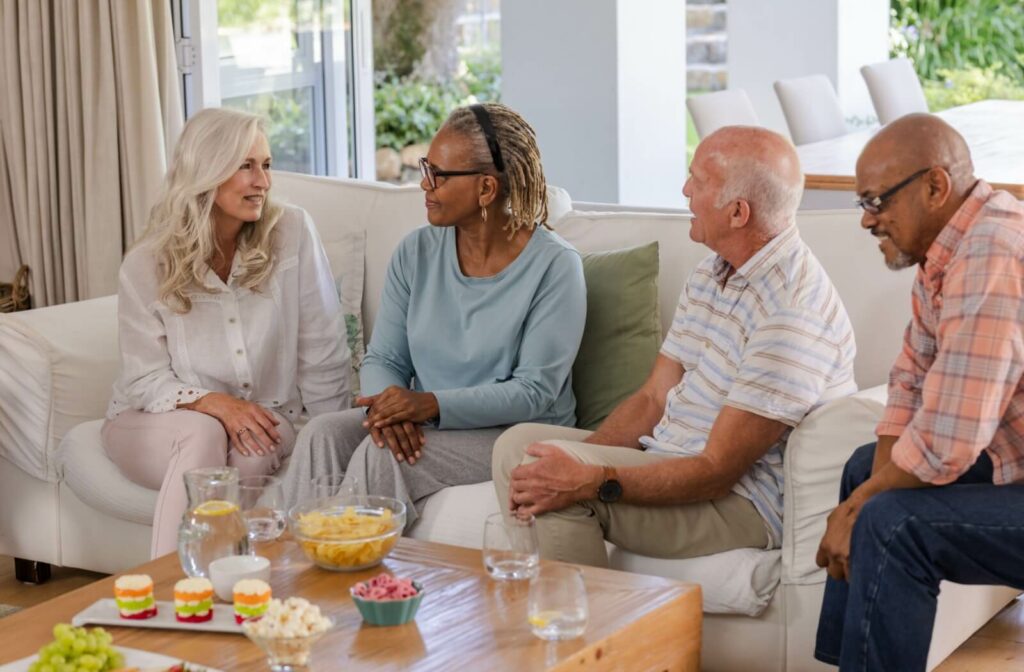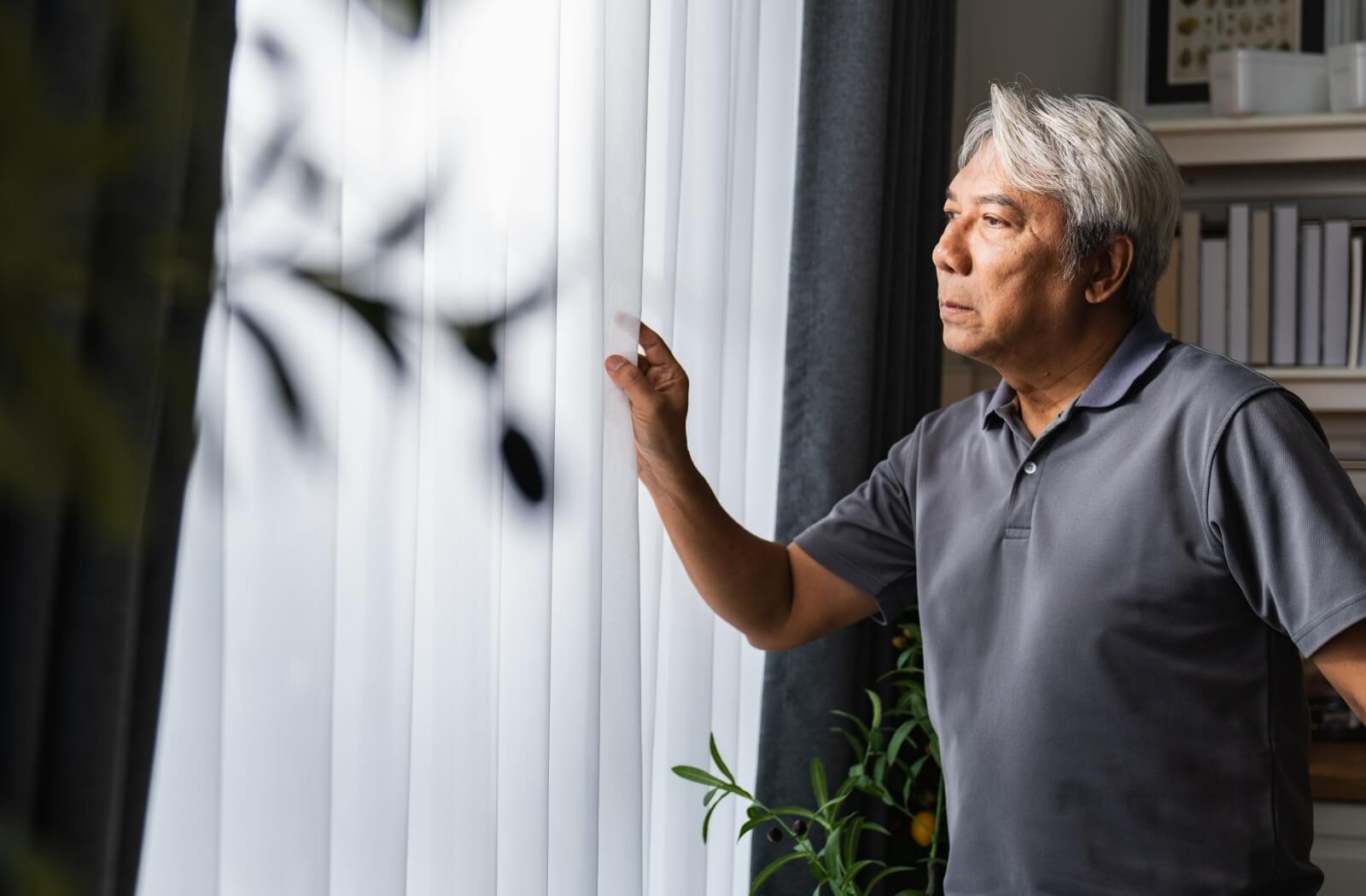Key Takeaways
- Loneliness impacts both emotional well-being and physical health in older adults.
- It increases risks for heart disease, weakened immunity, and cognitive decline.
- Strong social connections and community support reduce these risks significantly.
Are Loneliness and Poor Physical Health Connected?
Loneliness is more than just a fleeting feeling of isolation. For older adults, it can have long-lasting consequences that affect both the body and the mind. While occasional solitude can be healthy, chronic loneliness has been linked to serious health outcomes ranging from cardiovascular disease to reduced mobility.
The link between loneliness and physical health is clear: isolation can increase health risks, while connection and companionship strengthen resilience. For families and older adults considering personal care communities, understanding this connection can guide choices that promote well-being.
What Is the Impact of Loneliness on Older Adults?
Loneliness is common among older adults, especially after major life changes. Retirement, relocation, or the loss of a loved one often reduces daily interactions and increases the risk of feeling disconnected.
Key impacts of loneliness on older adults include:
- Declines in overall health: Prolonged isolation can lower energy, disrupt sleep, and reduce motivation, leading to a decreased sense of purpose.
- Emotional and physical strain: Loneliness is not just uncomfortable emotionally; it can affect physical well-being over time.
- A cycle of withdrawal: Without meaningful connections, older adults may become less likely to seek out social opportunities, which deepens isolation.
- Loss of daily structure: Social interaction provides routine, shared experiences, and casual conversations that keep life engaging and manageable.
These challenges highlight why creating and maintaining social connections is essential for healthy aging.
How Loneliness Affects Physical Health
Research consistently shows that loneliness is as harmful to health as smoking or obesity. The body reacts to isolation in ways that can weaken its natural defenses and increase the likelihood of disease.
Increased Risk of Cardiovascular Disease
Studies indicate that chronic loneliness raises the risk of high blood pressure, heart attacks, and strokes. Stress hormones released during prolonged isolation put extra strain on the cardiovascular system. Older adults who feel consistently lonely may therefore face greater challenges with maintaining heart health.
Weakened Immune System
Loneliness has been shown to suppress the immune response, making it harder for the body to fight off illness. Older adults experiencing social isolation may catch colds more easily or take longer to recover from infections. This reduced resilience can compound other age-related health concerns.
Cognitive Decline
The absence of social interaction can affect brain health as well. Older adults who are isolated are more likely to experience memory loss or cognitive decline. Engaging in conversation, learning new skills, or participating in group activities stimulates the brain in ways that help maintain cognitive function.
Sleep Disturbances and Fatigue
Loneliness is often associated with disrupted sleep patterns. Older adults who feel isolated may experience difficulty falling asleep, restless nights, or waking frequently. Poor sleep leads to daytime fatigue, which can further reduce motivation to participate in social or physical activities.
Reduced Physical Activity
Isolation can lead to lower levels of physical activity, whether due to a lack of motivation or the absence of a partner for exercise. Reduced activity contributes to muscle loss, joint stiffness, and a higher risk of falls. Over time, inactivity worsens overall health and independence.

What Are Ways to Reduce Loneliness in Older Adults?
While loneliness is a significant concern, there are practical ways to reduce it and improve health outcomes. Families, caregivers, and communities play a vital role in helping older adults stay connected and engaged.
Encouraging Regular Social Interaction
Consistent interaction is one of the most effective ways to combat loneliness. Phone calls, video chats, and in-person visits all make a difference. Scheduling routine conversations helps ensure that older adults have regular contact with loved ones.
Participating in Group Programs
Group programs—such as exercise classes, art workshops, or discussion groups—provide opportunities for connection and shared experiences. These programs help older adults meet new people with similar interests, creating a sense of belonging.
Volunteering and Community Engagement
Many older adults find purpose and connection through volunteer opportunities. Whether it’s helping at a local library, mentoring younger generations, or participating in charitable events, volunteering fosters both social interaction and a renewed sense of meaning.
Using Technology to Stay Connected
Technology offers valuable tools to reduce isolation. Tablets and smartphones make it easier to connect through video calls, online interest groups, or social media. Teaching older adults to use these tools confidently can open new avenues for engagement.
Animal Companionship and Therapy Programs
For many older adults, pets provide comfort, routine, and companionship. In communities where personal pets are not possible, animal therapy programs or visits to local shelters can offer similar benefits. Interaction with animals has been shown to reduce stress and improve mood.
Choosing a Personal Care Community
A personal care community provides built-in opportunities for connection. Residents benefit from shared dining, social programs, and staff who encourage participation. Living in an environment designed for interaction reduces the risk of isolation and fosters a healthier lifestyle.
Your Choice for Personal Care in Meadville
The connection between loneliness and physical health is clear, but the right setting can make all the difference. Older adults who feel supported and connected often enjoy stronger physical and emotional well-being.
At Juniper Village at Meadville, personal care offers independence with peace of mind for those needing daily support. Respite care provides the same compassionate services in a short-term stay, giving families flexibility and reassurance. Both options focus on engagement, meaningful connections, and personalized well-being.
Just minutes from downtown Meadville, our community blends small-town charm with individualized support. Whether for a temporary visit or long-term living, every person is welcomed, celebrated, and supported.
We encourage you to schedule a visit to see how Juniper Village at Meadville creates comfort, purpose, and connection every day.







